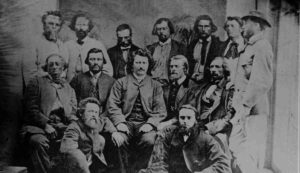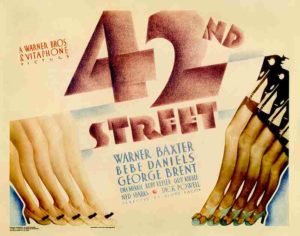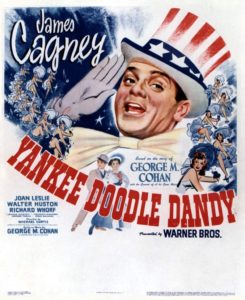
Every three decades, or roughly once a generation, Hollywood experiences a seismic shift. The transition from silent films to talkies in the 1920s. The rise of broadcast television in the 1950s. The raucous cable boom of the 1980s.
It’s been happening again, for some while now, as most folks have observed.
The long-promised streaming revolution — the next great leap in how the world gets its entertainment — is finally here in all its glory.

Warner Bros. Discovery studio in Burbank, Califoria, one of the oldest and largest Hollywood studios
In the 115-year history of the American film industry, never has so much upheaval arrived so fast and on so many fronts, leaving many writers, directors, studio executives, agents and other movie workers disoriented and demoralized. These are melodramatic people by nature, but talk to enough of them and you will get the strong sense that their fear is real this time.
“The last four years have shaken the movie business to its bones,” Jason Blum, the powerhouse producer whose credits range from The Purge series to Get Out and the BlacKkKlansman.” recently told Los Angeles Times film writer, Justin Chang.

Streaming, of course, has been disrupting the entertainment business for some time. Netflix started delivering movies and TV shows via the internet in 2007.
In 2024, however, the shift towards streaming has greatly accelerated, with Netflix, Disney+, Apple TV, Crave/HBO, Prime Video, YouTube Premium, CBC Gem and Kanopy, among other streaming platforms, competing for your movie attention.

Adding to Hollywood’s misery is the abrupt changing of the guard in Hollywood’s highest ranks. Nine of the top 20 most powerful people in show business have left their jobs, including Universal’s Ron Meyer, whose 25-year Universal career ended in 2021. David Zaslav is now in firm control of Warner Bros. Discovery, with Kevin Tsujihara exiting his role as chairman and CEO of Warner Bros. Entertainment, a job he held for six years. Paramount Global CEO Jim Gianopulos was removed, in favour of Bob Bakish, also now on the way out, with the company up for sale.
“It’s not clear that full normal will return even well into the fourth quarter of 2024,” Warner Bros. Discovery Chairman David Zaslav, told Chang in an interview on how Hollywood is faring against the streaming wars, and the slow recovery from the pandemic.

An empty cinema with no patrons. Is this picture an indication of what presages cinema in the future?
Will young people — trained during the pandemic to expect instant access to new movies — get into the habit of going to the movies like their parents and grandparents did? Generation Z forms a crucial audience: About 33% all moviegoers in 2023 were under the age of 24, according to the Motion Picture Association.
“Cinema as an art form is not going to die,” Michael Shamberg, the producing force behind films like Erin Brockovich and The Big Chill” told the New York Times’ Manohla Dargis in a recent interview. “But the tradition of cinema that we all grew up on, falling in love with movies in a theatre, is over.”
In other words, the art may live on, but the myth of big screens as the be-all and end-all is being dismantled in a fundamental and perhaps irreversible manner.




















